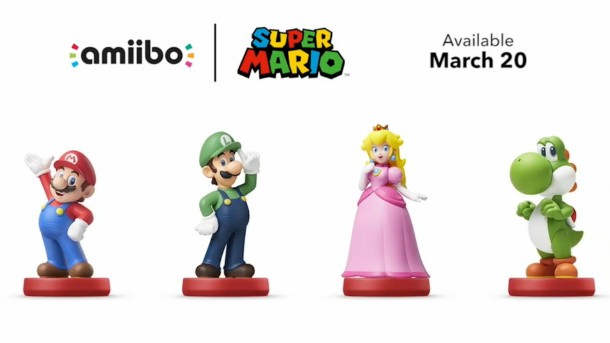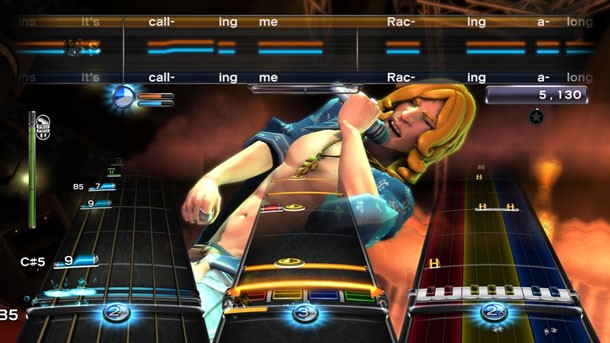The Biggest Video Game News Stories Of 2015 (So Far)

We're a quarter of the way through 2015, let's take a look back at what's already been a very eventful year in the video game industry. From big announcements like Nintendo making games for the mobile market to big shakeups in Konami's Metal Gear franchise, there's already been a lot of action.
Nintendo Embraces Change
Of all the companies in the industry, Nintendo had perhaps the most eventful first quarter of 2015. For a company that's been accused of being afraid to change, it's been very active in launching new systems, products, and initiatives.

Nintendo Goes Mobile, Announces New System In Development
The most significant move - and one that was the most surprising - was the company's late-March announcement that it had entered into a partnership with the Japanese company DeNA to bring Nintendo properties to mobile platforms and smartphones. However, it was clear that it would not be porting its existing games, rather crafting new mobile experiences with its familiar franchises and characters.
The company also said that it was creating a new dedicated game system codenamed "NX," and would be working with DeNA to create a new membership service and ways to connect its games across all platforms. This new membership service will likely be much more comprehensive - some are even hoping for an HBO Go-style streaming service - but it's also slated to replace its Club Nintendo loyalty program, which it closed this year.

Amiibo Mania
Nintendos Amiibo figurines have been a major success, selling million of units. The demand has been great, causing shortages and spawning a lucrative gray market for Amiibos on sites like eBay.

A Brand New (Old) Handheld
Nintendo's 3DS has been a stalwart for the company, but that's not stopping it from making its customary incremental improvements to the system. Released on February 13, 2015, the system is a much better version of the 3DS, with better 3D viewing functionality, a built-in c-stick, and even a more powerful processor which will lead to some upcoming games being exclusive to the new system and not compatible with the original.
So far, it looks to be a hit with consumers, and was the best-selling video game hardware in February.
Streaming Controversy
In less positive news, Nintendo once again ran afoul of creators of video game streaming content in late January. Seeking to come to a resolution with YouTubers, the company offered a settlement in which it allowed streamer to take 60 or 70 percent of the revenue of streaming content based on its games. However, the large cut Nintendo was taking - plus restrictions on channel's being able to stream content from other publishers - resulted in an uproar from the community, including streaming mega-star PewDiePie.

Sony Enjoys Continued Success
It's been a good couple years for Sony's video game division, and - with some notable exceptions - 2015 continued the company's console momentum.

PS4 Continues To Sell
Since its successful launch, Sony's PlayStation 4 has experienced strong sales. Though it did lose its month-to-month sales title briefly to a discounted Xbox One, its still in the lead, posting totals of 18.5 million consoles sold (later revised to over 20 million on March 3).

Some Black Marks
Things weren't all rosy, however. The company's PlayStation Now service, which launched officially on January 13, 2015, hasn't seem to garner much excitement. Following the failure (and botched launch in 2014) of Driveclub, Sony also conducted significant layoffs at its Evolution Studios subsidiary in March. The company's would-be flagship PS4 title, The Order: 1886 was also met with a cool reception from the press and consumers.

Farewell to SOE
Sony also cut ties with its long-standing Sony Online Entertainment division, which created such franchises as EverQuest and Planetside.

Microsoft Stays Competitive, Announces New Technology
Microsoft continued to dig itself out of the hole it created for itself with the launch of Xbox One with an aggressive retail strategy and some intriguing new technology.

Xbox Drops Price Again
Microsoft had dropped the price of the now Kinect-free Xbox One to $349 and scored a couple victories in the month-to-month sales race. However, at the outset of 2015 the price went back up to $399, allowing Sony to regain the title of best-selling home console. To help goose the system's momentum, Microsoft dropped the price back to $349, though Sony still came out on top in February.

HoloLens and Windows 10
Microsoft made a big splash with its Windows 10 event in early 2015. While the conference was ostensibly to give more details on its newest operating system - which will feature gamer-friendly Xbox Live functionality like game streaming built in - the real star for the tech crowd was its new holographic visor HoloLens.
It's a decidedly different product than the contending VR headsets like Oculus Rift and Sony's Project Morpheus, allowing developers to overlay 3D holograms on the users real-world vision.

New Leadership
Microsoft also announced some changes to its leadership structure, promoting former Fight Night producer and Kinect project lead Kudo Tsunoda to a corporate vice president position that will see him overseeing many of Microsoft Studio's internal teams, including Lionhead and Rare. Other studios, like Black Tusk, Mojang, and 343 Industries will still report to Phil Spencer.

Other News Stories of Note
Here are some of the other events and news stories that made an impact on the world of video games in the first quarter of 2015.

R.I.P. Maxis
Electronic Arts closed Maxis Emeryville on March 4, the original location of the Will Wright-founded studio, which created blockbuster series like SimCity and The Sims. Truly a sad day for gaming.

Net Neutrality Wins!
While not merely a video game industry story, the FCC delivered a blow for Internet freedom when it categorized the Internet as a utility in late February, ensuring a fair and even playing field for gamers, game companies, and all technology and Internet companies.

The Case of The Erased Destiny Account
One of the biggest stories of the year didn't involve any major company in gaming, but rather an 11-year-old kid who had his Destiny account erased by a nefarious player using the PlayStation 4's Share Play feature. Soon, the story was the talk of the Internet.
The plot thickened considerably when Game Informer's Mike Futter did some digging and found out that the supposed villain in the story wasn't actually the villain at all.

Rock Band Returns
Harmonix must have been dropping a hint when it quietly started releasing new DLC songs for Rock Band 3 early in the year. At the Game Developer's Conference in early March, the developer announced that it will be self-publishing Rock Band 4 for both PlayStation 4 and Xbox One. Time to dig out the old axe, kids.

Virtual Reality Continues To Gather Steam
GDC is increasingly becoming a media event, and this year some of the major players in the VR sweepstakes used to conference to show off their 3D headsets. Most notably, Valve unveiled its Vive VR headset, created in partnership with HTC. The company showed off some demos, including a 3D Portal level. Sony also had a very polished-looking Project Morpheus headset on display, which impressed showgoers. Oculus Rift had a smaller presence, but there were very cool Oculus demos that featured the Epic Games produced Lord of the Rings Smaug clip, and a horrifying playable demo of the game Narcosis.

Grand Theft Auto Finally Launches Heists
After many delays, Grand Theft Auto Online launched its complex online Heist missions with a mid-March content update. These complex, multi-stage missions were impressive, but as GI's Matt Bertz noted in his impressions, plagued by server and connection issues at launch.

Unreal Engine Is Free
Epic Games' announced at Game Developer's Conference that it will be dropping the subscription fees from its Unreal Engine development tools. From here on out, it's free to download and use, but Epic will get 5 percent royalties on any game that grosses more than $3,000. It's a pretty big coup for the indie development scene, since Unreal Engine was used in many of the last generation's big blockbusters.

Kojima And Komani Head For Messy Metal Gear Divorce
In a seemingly symbolic move, Konami removed "A Hideo Kojima Game" from the box art of Metal Gear Solid V: The Phantom Pain. It was said to be part of a restructuring, but later it came out that things may not be as pleasant behind the scenes. Kojima, who says he will see the game through to its completion, has confirmed it will be his last game working on the series and - in his mind - the "last Metal Gear game," regardless of whether Konami continues to make it. For Konami's part, the company clearly sees MGS as an ongoing franchise with or without Kojima.

Molyneux Stiffs Godus God
Bryan Henderson, who won the right to be an all-powerful deity in famed developer Peter Molyneux's god game Godus, reports to Eurogamer that he has not been contacted by Molyneux's 22 Cans studio and has not been able to experience being a god in the game. This causes a lot of controversy online, for which Molyneux apologized and promised to make right.

Gabe And Notch Make The Rich List
Notch, who won headlines last year for buying an $80 million mansion, joined Valve founder Gabe Newell on the Forbes list of the richest people in the world in March. Turns out that video games are big business.

Joystiq Closes
The popular video game blog Joystiq was closed by parent company AOL, which folded the name into its Engadget tech blog.

Rest in Peace, Spock
Star Trek actor Leonard Nimoy passed away at the age of 83 on February 27, 2015. He was a director, writer, photographer, and poet in addition to his role as Mr. Spock. He will be missed by gamer and science fiction fans everywhere.

Get the Game Informer Print Edition!
Explore your favorite games in premium print format, delivered to your door.
- 10 issues per year
- Only $4.80 per issue
- Full digital magazine archive access
- Since 1991









